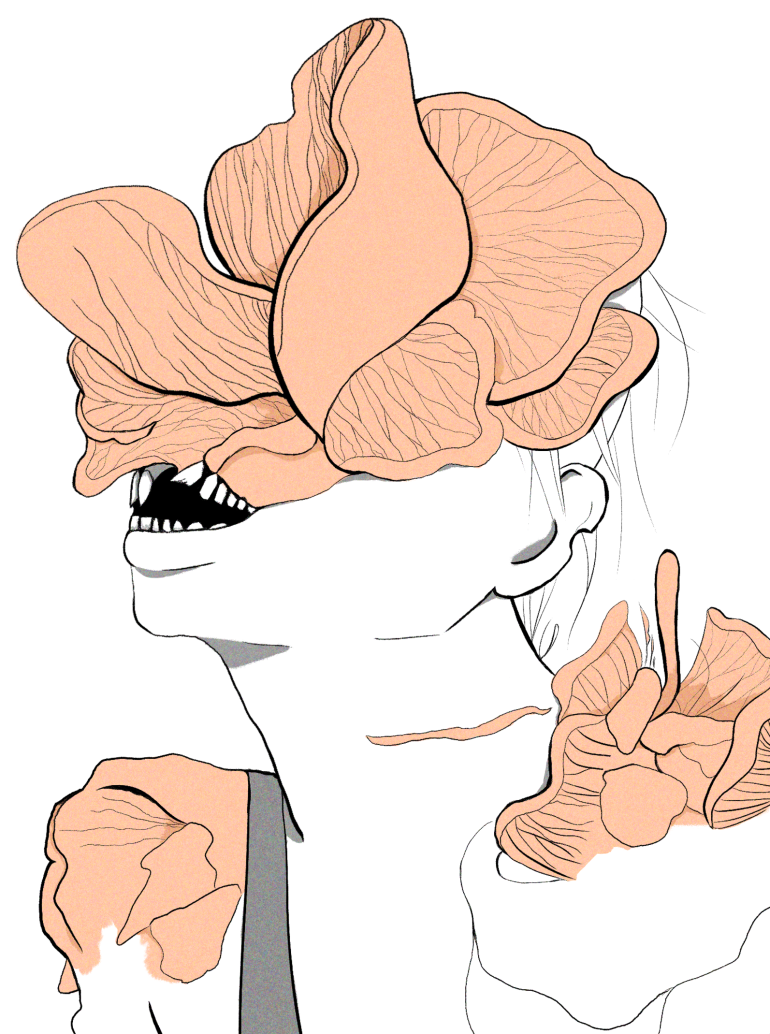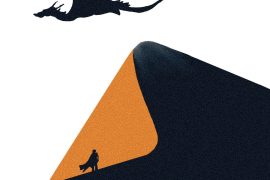From the world’s most popular video game franchise that won not only one, but two game of the year awards for its action, storytelling, and a thrilling sequel, The Last of Us series has had us on the edge of our seats since 2013. Now, we get to experience the story all over again through HBO’s popular rendition of the story. The show stars Pedro Pascal—of Game of Thrones and The Mandalorian—as Joel, as well as his former co-star Bella Ramsey, who also had a role in Game of Thrones and is now playing Ellie. With the show running nine episodes in its first season, the retelling of the popular video game series has brought in millions of new and old fans alike, demonstrating promising results of the television adaptation and the possible continuation of a new season.
The video game series centers around the concept of fungal mutations deriving from cordyceps, a fungus that can infect and parasite the brain and body of insects such as ants and spiders. Although this fungal infection as we know it today is only prevalent in small bugs, the series further adapts to the concept as if the cordyceps themselves have evolved to withstand higher temperatures, allowing the fungus to mutate within a human body and control their actions.
The television show adapts the idea of cordyceps mutation in the same way as the game series However, there were some minor changes to how the virus can spread. In the games, the infected humans can bite and spread fungal spores into the air, making it vital for the characters to wear gas masks while outside to prevent accidental spore ingestion. Similarly, the show includes infection through bites, but the director and screenwriters had deemed that the idea of spores would have been difficult to implement in a television production. According to the creator, writer and executive producer, Craig Mazin. “While [the usage of spores] works in the video game environment, in real life, spores move around everywhere. And it’s just harder to buy into the notion that spores localize and don’t spread,” said Mazin in an interview with HBO.
While sticking with the original story is usually the goal of any adaptation, the show writers wanted to add additional background to the characters.
Initially, the plot follows Joel, a middle-aged man with his daughter Sarah and his brother Tommy. Before the outbreak, viewers get to learn more about the characters’ backgrounds, but as the episode goes on, it quickly becomes dangerous and tense as Joel and his family are escaping from the rapidly infected individuals in their neighborhood. Several events occur during this time as fear and panic sets in, steering the characters to fight for their lives. Neil Druckman, an executive producer and writer of the show, explains “it begins with tragedy.”
Although the show doesn’t branch off far from the original story and is ultimately accurate to the game series through the usage of similar lines and cinematography, there are some changes that the producers had made in order to keep audiences engaged with the characters and to learn more about their backstories. We can see an example of this in episode three, titled Long, Long Time which stars Nick Offerman as Bill, the hardcore survivalist who has made it through the apocalypse on his own intellect and resources. In the game, the audience doesn’t have the chance to get to know Bill as much as in the show. We know him as a man with a single-minded outlook on the world with a habit of ruining his relationships with others. In the adaptation, his character is the complete opposite as he finds his purpose in life by finding the meaning of love in an otherwise bleak world.
Producers Neil Druckman and Craig Mazin wanted to use practical effects for the majority of the infected. Specifically the humans with fungal spores erupting from their faces, also known as Clickers. By working with Barrie Gower, a prosthetic designer for the show Chernobyl, they were able to achieve just that. “When we joined the show, we spoke to both Neil and Craig about the design for the Clickers. And we started off with a lot of preliminary concept art,” said Gower during an interview with HBO. Although the prosthetic team wanted to create new designs for the Clickers, they were intrigued by the original designs from the games, “even though we were creating new, refreshed versions on the same brief, we kept going back to the original designs that Neil and his team had created for the games,” said Gower. Not only does this reintroduce us to a familiar concept from the games, but producers Neil Druckman and Craig Mazin also wanted to shine the light on lesser-known actors, giving the opportunity to fans of the game to star as these clickers and infected humans.
Throughout the last few years, there have been a lot of cinematic adaptations involving video game concepts, some may have perhaps been better than others while the rest were skippable, but whether you’re a fan of the Last of Us video game, or not, this show is worth the time.





